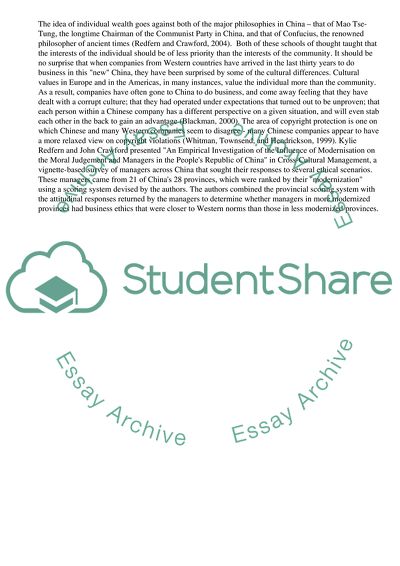Cite this document
(“Chinese Managerial Ethics Case Study Example | Topics and Well Written Essays - 1500 words”, n.d.)
Chinese Managerial Ethics Case Study Example | Topics and Well Written Essays - 1500 words. Retrieved from https://studentshare.org/business/1518658-chinese-managerial-ethics
Chinese Managerial Ethics Case Study Example | Topics and Well Written Essays - 1500 words. Retrieved from https://studentshare.org/business/1518658-chinese-managerial-ethics
(Chinese Managerial Ethics Case Study Example | Topics and Well Written Essays - 1500 Words)
Chinese Managerial Ethics Case Study Example | Topics and Well Written Essays - 1500 Words. https://studentshare.org/business/1518658-chinese-managerial-ethics.
Chinese Managerial Ethics Case Study Example | Topics and Well Written Essays - 1500 Words. https://studentshare.org/business/1518658-chinese-managerial-ethics.
“Chinese Managerial Ethics Case Study Example | Topics and Well Written Essays - 1500 Words”, n.d. https://studentshare.org/business/1518658-chinese-managerial-ethics.


